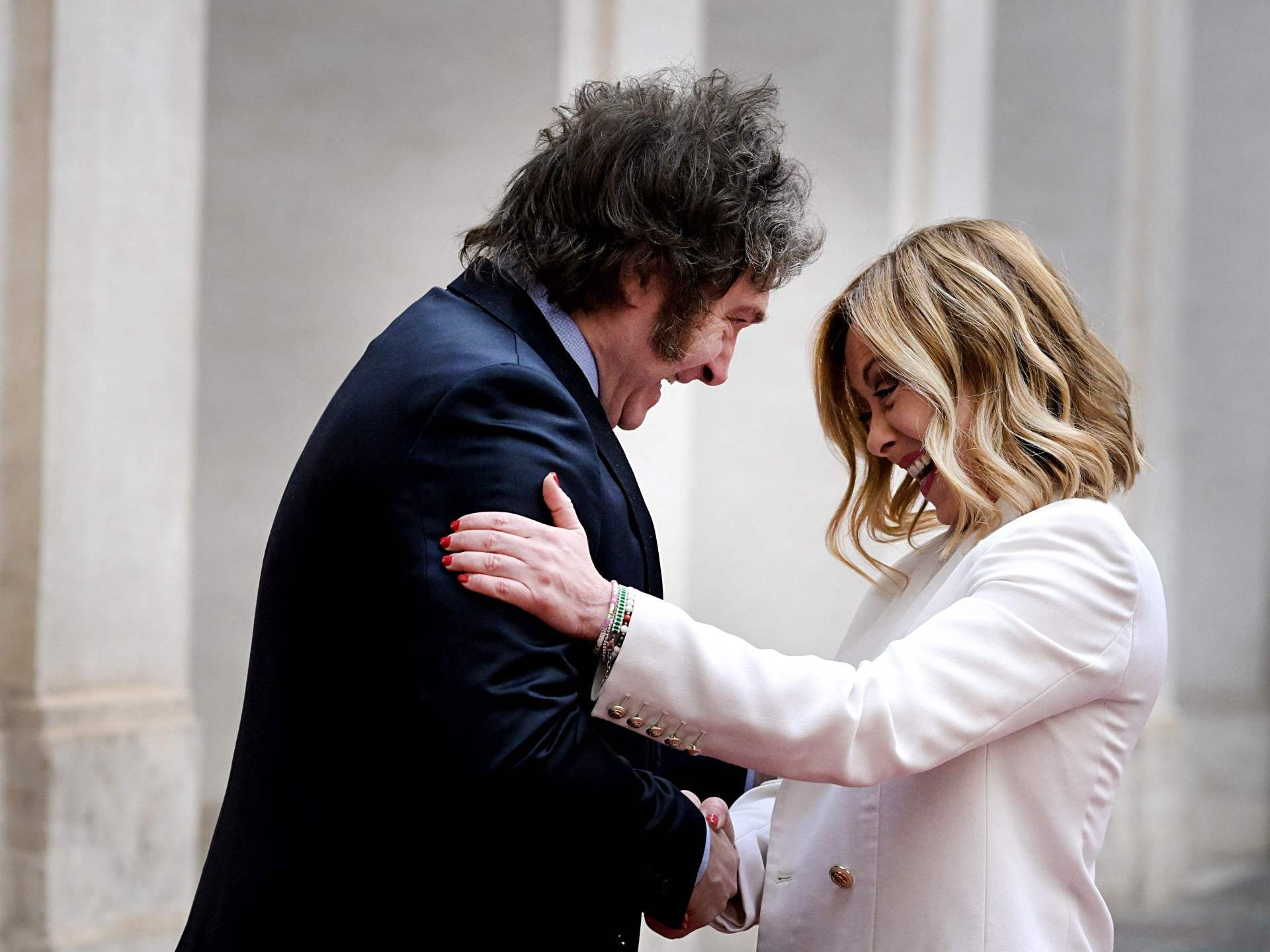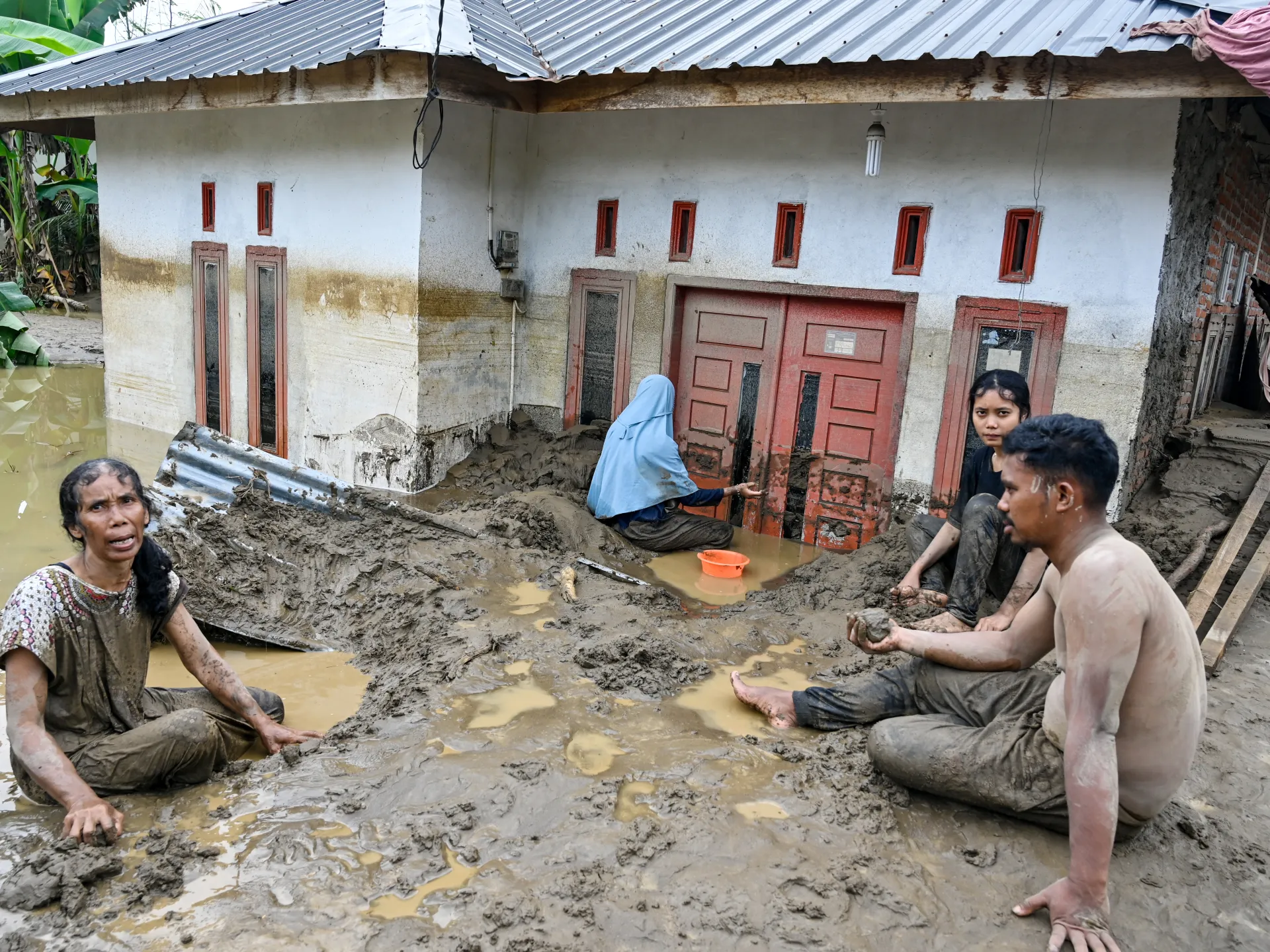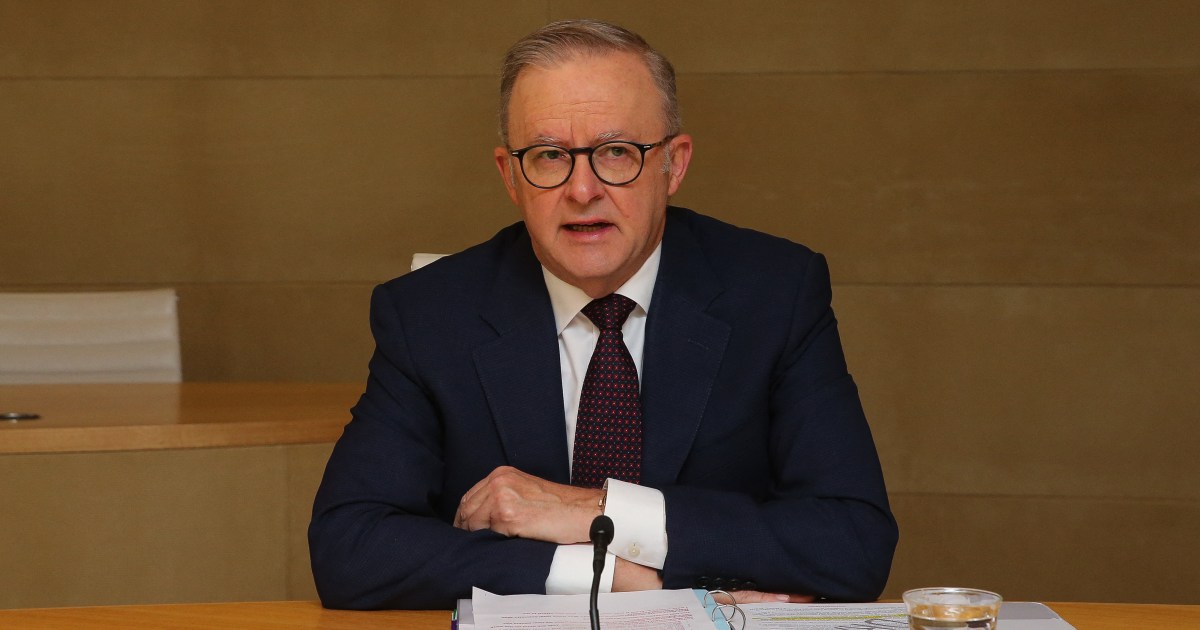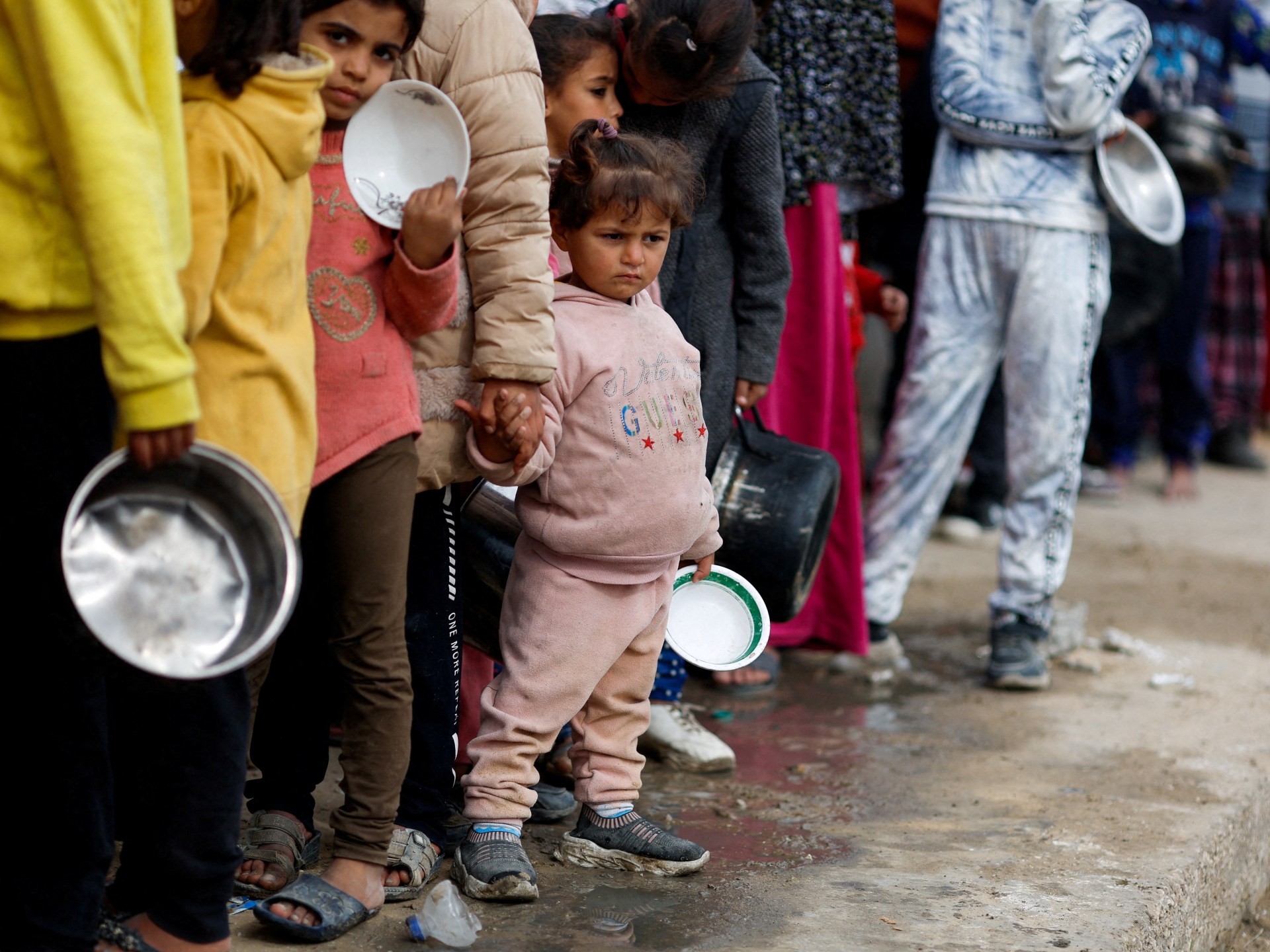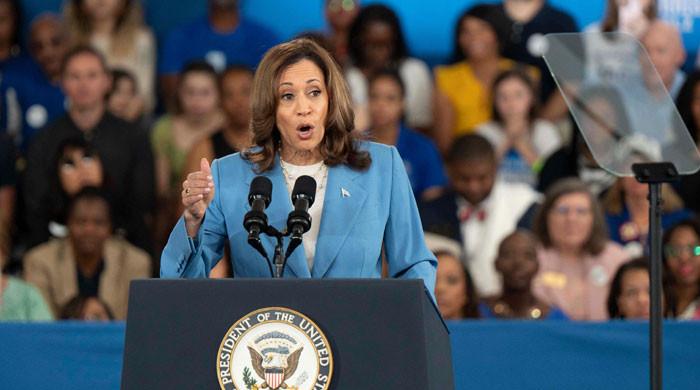When far-right “outsider” Javier Milei was elected president of Argentina in November, far-right Italian Prime Minister Giorgia Meloni was the first European leader to congratulate him. In February, Milei returned the favor by making Italy the first European country he visited as president. Since then, the two leaders had nothing but praise for each other.
It's no surprise that Meloni and Milei support each other, given the many far-right opinions and political positions they share, from opposition to abortion to hostility toward the LGBT community. On paper, both are socially conservative “populists” capitalizing on their people's growing frustration with establishment politicians whom they perceive as serving “globalist forces.” But the apparent bond between the two leaders – who spoke at a far-right convention in Madrid last weekend – is not based solely on ideological affinity. In fact, the policies of Milei and Meloni are far from interchangeable: the Italian prime minister leads a statist and nationalist party with historical ties to fascism, while the president of Argentina self-identifies as a libertarian and an “anarcho-capitalist.” While Meloni considers stopping immigration to be one of the main causes of his government, Milei is largely indifferent to the issue. The most important factor uniting the two leaders seems to be not their shared ideological convictions but the hypocritical “neoliberal populism” they practice in the service of Western imperialism.
In fact, a cursory review of the social reforms that the two leaders implemented during their time in power immediately exposes the neoliberal spirit of their so-called “populism.”
Milei won the presidential election amid a wave of anger over decades of economic crises and crippling corruption in Argentina. She promised to restore the system, and the main slogan of her electoral campaign was “everyone out” in reference to the Argentine elite and traditional politicians. She promised to reduce state spending through privatization, reduce inflation and put money in the pockets of long-suffering Argentines. In practice, however, her policies have produced nothing but more misery for ordinary Argentines, while further lining the pockets of the elite. In fact, after assuming power, he made it clear that he has no interest in pleasing the public that brought him to power. He moved to cut state subsidies for fuel and transportation, while promising to cut the budget for public universities by more than half, regardless of their plummeting approval ratings. He is still determined to pass highly unpopular reforms that would strip workers of most basic rights and privatize major state-owned companies. He closed state agencies, laid off tens of thousands of civil servants and cut pensions and salaries to attract more investors and boost market optimism. Given that society at large, and not the political class, is most affected by his radical economic policies, many Argentines are already questioning how populist Milei's populism really is. Meanwhile, the International Monetary Fund, champion of international neoliberalism, has already praised the “ambitious stabilization plan” promoted by Milei.
In Italy, Meloni's populist credentials are equally in doubt.
In August, the prime minister dealt a surprise blow to Italian banks by imposing a one-time 40 percent tax on their profits as a result of higher interest rates, after chastising them for not rewarding deposits. This was a traditionally populist measure (on the side of the people and against the banks) and earned Meloni considerable praise and respect among his supporters. However, just a few weeks later, a stern warning from the European Central Bank and a backlash from the banking lobby led Meloni to reconsider his populist stance and greatly soften the newly introduced tax in line with neoliberal interests.
And this was not Meloni's first radical change in his dealings with Italian banks. Ahead of the 2022 elections that brought her to power, Meloni and her party, Fratelli d'Italia (Brothers of Italy), campaigned against the recapitalization of Monte dei Paschi di Siena, Italy's oldest bank, which has been in business for several years. In crisis. . However, upon assuming power, she quickly changed her stance and began advocating privatization.
More recently, Meloni appeared to turn his back on his party's long statist history and abandon any pretense of populist protectionism, announcing his intention to raise some 20 billion euros ($21.7 billion) over three years by selling national companies. most precious in Italy, including the national railways and the postal service.
Unlike Milei, Meloni was elected on an exclusively protectionist ticket, and her core voters are inherently suspicious of the free-market politics and privatization drives demanded by the US-led world order. This means that she is less open about her intention to maintain the neoliberal status quo. However, actions speak louder than words, and Meloni's actions expose the hypocrisy and superficiality of her “populism” to all.
On the foreign policy front, we see a similar pattern. Milei openly and enthusiastically supports the neoliberal consensus on all fronts, without paying real attention to the popular consensus in her country. He is prejudiced, or even hostile, against China, supports the United States in all its foreign adventures, and considers himself an “Israel fanatic.” He seems to be living in a black and white world, where the free, moral West stands strong against a dangerous potpourri of communists, Marxists and murderous socialists. Meloni, meanwhile, is talking the populist narrative of standing up to the powers that be and putting Italy back on the map as a strong, independent nation, but never doing anything that might actually upset the United States.
In fact, in her 2021 book, I Am Giorgia, the Italian prime minister advocated for a better relationship with Russia. However, when she became head of the Italian government, she immediately bowed to Washington and adopted her own anti-Russian policies. She strongly supported the United States not only regarding the war in Ukraine but also Israel's war in Gaza. Basically, the populist Meloni who won the election ceded her seat to a neoliberal Meloni, so that Italy could get some crumbs (still substantial for a small country) from the giant pie that is the military industrial complex.
Meloni demonstrated the same hypocrisy in his approach to Europe. In opposition, she was a staunch Eurosceptic like most of her main supporters. But once in power, she quickly aligned herself with hardline European representatives such as German European Commission President Ursula von der Leyen. The populist Meloni reappears occasionally to criticize European rigidity in addressing the Italian debt, but these performances never translate into any action.
Today, both Italy and Argentina suffer from serious problems – from the rising cost of living and deteriorating social services to unemployment and lack of prospects for young people – arising from the many excesses of capitalism. There is undoubtedly an appetite in both countries for a populist agenda and an overhaul of the system. However, the supposedly populist leaders of both countries, instead of focusing on addressing these pressing problems, seem obsessed with countering hypothetical threats from Russia and China. They are waging war against the ghost of communism while their people suffocate under the weight of unbridled capitalism.
Sure, Meloni and Milei are not the same, but their differences are only superficial. Both are working to keep the populations they lead subordinate to the neoliberal order while attempting to create the impression that they are “fighting for the people.” Meloni and Milei are good friends and will probably remain so, not because they share a belief system, but because they are both sovereignists without sovereignty.
The views expressed in this article are those of the author and do not necessarily reflect the editorial position of Al Jazeera.

